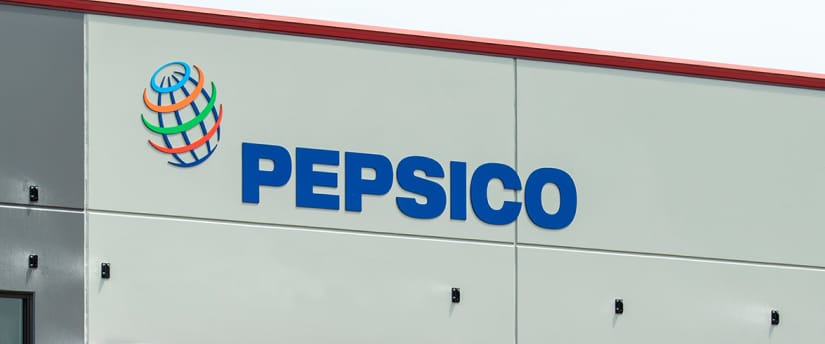PepsiCo Launches Direct Farmer Incentive Program in Brazil to Accelerate Regenerative Agriculture

• Pilot introduces a hybrid payment model to fund regenerative agriculture across 7,000 acres in the Cerrado, with plans to reach 30,000 acres.
• Co-funded initiative aims to reduce chemical inputs, improve soil health, and strengthen climate resilience in one of the world’s most pressured agricultural frontiers.
• Program supports PepsiCo’s commitment to spread regenerative practices across 10 million acres globally by 2030.
Brazil’s Cerrado Becomes a Testbed for New Incentive Model
PepsiCo has launched a direct farmer incentive program designed to accelerate the adoption of regenerative agriculture across the Cerrado, an ecosystem that sits at the centre of Brazil’s corn and soybean production. Created in partnership with Griffith Foods and Milhão, the initiative introduces a hybrid payment approach intended to reduce transition risk for farmers while encouraging long-term environmental gains.
The Cerrado’s role in the global food system has intensified investor attention on the region. It produces more than 60 percent of Brazil’s soybeans and a substantial share of the country’s corn, yet faces escalating pressure from deforestation, soil erosion, and climate volatility. For corporates sourcing from this landscape, supply-chain exposure is both a material risk and a governance priority.
A Hybrid Model Linking Practices and Outcomes
The program combines two payment streams. First, farmers receive upfront compensation to finance composting, biological inputs, and reductions in synthetic fertilizers. Second, a performance-based bonus rewards producers who successfully curb agrochemical use during the season. The approach is designed to reflect real operational costs while tying part of the incentive to measurable environmental outcomes.
PepsiCo describes the model as a way to break the cost barrier that often delays regenerative adoption. Thais Souza, Sustainability Lead for PepsiCo Brazil, said the strategy helps address the financial uncertainty that farmers face when shifting to soil-restorative methods. She pointed to expected improvements in soil structure, emissions reductions, and greater climate resilience as core reasons for deploying the model in a region that anchors the company’s grain supply.
Interest from additional landscape partners has already emerged, positioning the pilot as a potential reference point for wider industry uptake. The concept aligns with a growing trend in corporate agriculture: tying capital directly to practice changes that yield quantifiable environmental gains.
Financing, Scale, and Corporate Alignment
The pilot will cover 7,000 acres in its first phase, with a planned expansion to 30,000 acres within three years. This would match PepsiCo’s full corn sourcing footprint in the Cerrado. Funding is shared between PepsiCo and Griffith Foods, with Milhão contributing to local implementation. Total investment is expected to reach 1 million dollars by year three.
Griffith Foods’ regional sustainability director, Nicholas Costa, described the collaboration as part of a shift in the food industry from harm mitigation toward ecological restoration. He emphasised that the partnership demonstrates how pre-competitive cooperation can be used to strengthen supply-chain resilience while accelerating climate-aligned goals.
PepsiCo’s market supply lead for Brazil, JP Cavalcanti, framed the pilot as a model intended for replication across other high-risk landscapes. He called the Cerrado initiative a blueprint that could help mobilise cross-sector commitments capable of delivering environmental and economic value.
RELATED ARTICLE: PepsiCo Doubles Regenerative Farming Footprint to Over 1.8 Million Acres: 2023 PepsiCo ESG Report
Governance and Climate Implications for Global Supply Chains
The program is guided by PepsiCo’s Climate Resilience Platform, an open-access planning tool that identifies region-specific agricultural interventions. The focus on adaptation strategies reflects growing pressure on multinational food and beverage companies to manage climate-related risks in primary production and to demonstrate credible pathways toward Scope 3 reductions.
For executives and investors, the initiative highlights how procurement-linked incentives are becoming a central mechanism for decarbonisation. It offers a view of how companies may structure future supplier agreements: combining direct payments, outcome requirements, and regional climate modelling to create defensible ESG performance in volatile landscapes.
The Cerrado’s strategic weight makes this pilot particularly relevant. If the model succeeds at scale, it could influence the design of incentive schemes across other agricultural frontiers facing soil degradation and deforestation risk. It may also inform how corporate buyers integrate regenerative criteria into long-term sourcing contracts, especially as regulatory pressure intensifies across the EU, North America, and emerging markets.
A Regional Pilot with Global Relevance
As food companies confront climate-driven supply constraints, incentives that reduce transition risk for growers are becoming more central to governance and capital-allocation decisions. Brazil’s Cerrado now hosts one of the clearest tests of whether direct payments for regenerative practices can deliver both environmental outcomes and supply stability.
The coming three years will determine whether the model can be scaled beyond its initial footprint and whether similar hybrid approaches can help reshape production systems across other climate-vulnerable regions. For global ESG leaders, the Cerrado pilot offers an early view of how corporate demand, farmer economics, and ecosystem restoration may converge in the next phase of sustainable agriculture.
Follow ESG News on LinkedIn












